Cultural Resources
Joshua Bennett, 2010 student speaker for the Graduation of the College of Arts and Sciences at UPenn
CHRISTIAN EDUCATION/GRADUATION SUNDAY
CULTURAL RESOURCES
Sunday, May 26, 2013
Charles H. Smith, Lectionary Team Cultural Resource Commentator
Lection – Isaiah 1:17
Learn to do good; seek justice, rescue the oppressed, defend the orphan, plead for the widow.
I. Key Word
Learning: To become a knowledgeable contributor to our community, secular and Christian education is required for evidence of personal and social responsibility; evidence of the spiritual competence of believers is revealed that they have learned to do good, seek justice, rescue the oppressed, defend the orphan, and plead for the widows.
II. The History/Historical Documents Section
Standing on this side of the dark night of indignity and inhumanity of enslavement in the United States, even people of African descent find it difficult to fathom the suffering endured by a people who would not die. Our forebears were brought to these shores for the expressed purpose of providing hard labor in the performance of tasks for the southern leisure class, a people who deemed it important to keep those enslaved clueless as to how they might set themselves free, voiceless of political expression to that end, and penniless so that there could be no galvanization of economic resources to achieve their desired fate. Yet our parents were not left hopeless.
The people who were called upon to endure longsuffering found intermittent solace in religious expression, and in their own way came to know stories contained in the book of another enslaved people. They could readily identify with the plight of the enslaved Hebrew people, who were themselves subject to hard labor coerced by the top of a whip; they saw their common lot with the people who were challenged to learn to make do with inadequate resources, even to the point of having to make bricks without straw. They found great resonance in the tales of Moses, a learned liberator, who was prepared in the house of Pharaoh. He made common cause with his heritage learned at the knee of his mother, and was engaged by the daughter of Pharaoh. The usefulness of Moses’ unparalleled courage, his commitment to justice, his demonstrated mercy, and his well-developed intellect were all used as tools to set a people free.
These tools and strategies used by Moses became the pillars held in common by those who played key roles in the liberation stories of the Holy Bible. There was a consistent theme discerned even by the dark people who were forced into a plight of illiteracy. The Bible’s heroes who made a difference in the lives of great numbers of people seemed to all have some modicum of courage, commitment to justice and mercy, and a fine-disciplined mind. Such could be said of Joshua, who was the successor to Moses; of Gideon, who overcame his self-described limitations; of David, who won an upbringing in the king’s household; and of Isaiah, who did not let his privilege and access to the king dissuade him from demanding justice and mercy, courageously thinking through a solution to the social and political problems of his day.
When the long midnight experience of slavery came to a close, the African people of American enslavement reached for the tools found in the only book they knew, the Holy Bible, which caused them to be heartened as they embraced its moral and ethical teachings and built their own lasting cultural institutions upon the same pillars.
In the immediate aftermath of the Civil War, black churches sprung up all over the nation and served as beacons of hopefor those who had little hope left. Black churches gave rise to institutions of learning such as Virginia Union University in Richmond, Howard University in Washington DC, and Morehouse University in Atlanta. Churches and individuals recognized that while it would be hard to find persons who could outwork them, unless they improved their lot via education they would forever be left behind.
Many were encouraged, male and female, to participate in the local learning experiences made available quite often by the local black church that often served the dual role as a school house. When the matriculation of local institutions were accomplished, some went on to post-secondary academic pursuits. The commonplace word of encouragement came to them from those senior in years, who did not have the benefit of disciplined learning but who surely knew its value. Their word to the children who went off to continue their academic sojourn was, “Go get some learning, but don’t forget where you came from.”
This was the theme that they had heard preached from the pulpits of the churches that became civic, social, and religious centers of their communities. Through sermons and messages heard in church-schools, they were exposed to higher learning experiences than their siblings and peers. They kept in their consciousness the plight of the people from whence they came, and they prepared themselves to act on this fact. The term “Talented Tenth” was introduced to the African American social circumstance by W. E. B. Du Bois a little more than 100 years ago. It is clear that his assessment of most historical liberators was one of well-prepared persons making the deliberate choice to “go get some learning,” and then turn around and fulfill their responsibility to “don’t forget where you came from.”
The Black Church moved into the 21st Century with the quest for clarifying its role in a new social reality. It must revisit its core values and mission to remain relevant in connecting the distinctive, soulful, joyful, liberating worship experiences into learned Christian living that demands justice for all and compassion for the poor, orphan, and the widow.
III. Description of the Liturgical Moment: Commencement

| Commencement exercises at any level of academic achievement is an important rite of passage in the broad American culture generally, but it has unique and celebratory significance in the African American culture specifically. Dating back 900 years in Europe, formal commencement exercises publicly marked the completion of some training regimen and the launch of the trainee/apprentice into an adult world to fend for them. From the monks who completed Catholic seminars in the 11th century, to the graduates of the historically black colleges and universities in the 21st century, graduation day marked the students’ academic sacrifice in refining their minds, the faculties’ reward of intrinsic satisfaction of having given to the world yet another prepared class, and the parents’ dreams realized and prayers answered. |
In the African American experience, the solemnity of the occasion of commencement quite often makes room for the mood and movement of the African American worship experience. It is a day of rejoicing, and for many that makes it a day of “joyful noise.” Just as “Big Mama” can “get her shout on” when she feels the spirit when her grandbaby makes the conscious Sunday morning decision to give her or his life to Christ, and the family jubilantly gathers at the time of baptism, commencement can become a time of glad exaltation.
The celebratory mood quite often calls to remembrance the prayers sent heavenward for the child in his early years; the performance under pressure rendered on her classroom and standardized tests; the financial sacrifice that cannot be always monetarily measured; and the prayers of thanksgiving on the morning of the commencement.
God is to be glorified because God has been an active participant in the growth and development of the graduate. Whether the graduate realizes it or not, and whether he or she has prayed for God’s guidance or not, someone has been somewhere on his or her knees talking to the Lord about the graduate’s academic journey. In that prayer with “knee-bent and head-bowed,” the prayer warrior is asking the Lord to remind the graduate of his or her responsibility to embrace an agenda that is consistent with the teaching of the prophet Isaiah. The graduate has learned applied physics, quantitative analysis, and African American literature, and has done this quite well, but she or he must also “learn to do good” and then pursue a career mindful of those whom the prophet Isaiah felt strongly about: the oppressed, the orphan, and the widow.
The graduating student celebrates her academic attainment, while her intellectual prowess is certified, and she is able to proficiently respond to the questions posed to her by professors. However, there is another question that must echo in her consciousness and manifest its understanding in her daily walk. It is the question that is raised by that same “Big Mama,” as she speaks for all of her lineage who went before her. While those who came before may not have been blessed with the same academic opportunity, they can join in the chorus and sing to the one of whom they are proud.
“Is you got religion?” While the incorrect grammar may be born out of the history of denied academic access, there is a profound theological alignment in the spiritual. The contention of the chorus is that while they are rightfully proud of the scholastic milestone that the commencement celebrates, the intellectual development is truncated if there is not concomitant spiritual development as well. When the new graduate hears the question posed by the chorus in song, he must be able to lift his voice and sing out his response: “Certainly, certainly, certainly, Lord.” The Black Church remains the source for understanding moral virtues and the ordained advocate for justice; each graduate is another soldier in our army.
IV. Songs That Speak to the Moment
The peculiar genius of the Negro slave is revealed in this interrogation when he observes the outside piety of his Master as he quotes the Bible and attends church. The slave had experienced the ole time religion, which leads him to ask the question Is your religion real? If so what about justice and compassion?
Have You Got Good Religion?
Have you got good religion?
Cert’nly Lord!
Have you got good religion?
Cert’nly Lord!
Have you got good religion?
Cert’nly, cert’nly, cert’nly Lord!
Have you got the feeling?
Cert’nly Lord!
Have you got the feeling?
Cert’nly Lord!
Have you got the feeling?
Cert’nly Lord!
Cert’nly, cert’nly, cert’nly Lord!
Have you seen the Light?
Cert’nly Lord!
Have you seen the Light?
Cert’nly Lord!
Have you seen the Light?
Cert’nly Lord!
Cert’nly, cert’nly, cert’nly Lord!
Have you been redeemed?
Cert’nly Lord!
Have you been redeemed?
Cert’nly Lord!
Have you been redeemed?
Cert’nly, cert’nly, cert’nly Lord!
Have you been to the water?
Cert’nly Lord!
Have you been to the water?
Cert’nly Lord!
Have you been to the water?
Cert’nly, cert’nly, cert’nly Lord!
Have you been baptized?
Cert’nly Lord!
Have you been baptized?
Cert’nly Lord!
Have you been baptized?
Cert’nly, cert’nly, cert’nly Lord!1
This Little Light of Mine
This is a song that is recognized all around the globe. Depending on the singer, the song may take its theme from Matthew 5:16: “Let your light shine before men, that they may see your fine works and give glory to your Father who is in the heaven.” Or, it may refer to the words of Jesus in Luke 11:33, where he said, “No man, when he hath lighted a candle, putteth it in a secret place, neither under a bushel, but on a candlestick, that they which come in may see the light.” Or, it may be based on Matthew 5:14-15, where Jesus said, “Ye are the light of the world. A city that is set on a hill cannot be hid. Neither do men light a candle and put it under a bushel, but on a candlestick; and it giveth light unto all that are in the house.” This song became a theme song for many groups and individuals during the modern Civil Rights Movement, most notably Fannie Lou Hamer, freedom fighter from Mississippi.
This little light of mine, I’m gonna let it shine.
This little light of mine, I’m gonna let it shine.
This little light of mine, I’m gonna let it shine.
Let it shine, let it shine, let it shine.
Won’t let Satan blow it out, I’m gonna let it shine.
Won’t let Satan blow it out, I’m gonna let it shine.
Won’t let Satan blow it out, I’m gonna let it shine.
Let it shine, let it shine, let it shine.
Let it shine til Jesus comes, I’m gonna let it shine.
Let it shine til Jesus comes, I’m gonna let it shine.
Let it shine til Jesus comes, I’m gonna let it shine.
Let it shine, let it shine, let it shine.
Hide it under a bushel—NO! I’m gonna let it shine.
Hide it under a bushel—NO! I’m gonna let it shine.
Hide it under a bushel—NO! I’m gonna let it shine.
Let it shine, let it shine, let it shine.
Let it shine over the whole wide world, I’m gonna let it shine.
Let it shine over the whole wide world, I’m gonna let it shine.
Let it shine over the whole wide world, I’m gonna let it shine.
Let it shine, let it shine, let it shine.2
Lift Every Voice and Sing
by James W. Johnson
As a student from Dunbar High School in the 1940s, this anthem was sung at every assembly as the Negro National Anthem. It spoke truth to our plight and brought hope of justice for our future. Singing this song quickly became a way for African Americans to demonstrate their patriotism and faith in a just God, which brought hope for the future. It called for earth and heaven to “ring with the harmonies of Liberty.” It was a clarion call against racism and Jim and Jane Crow laws. This hymn is God-centered and can be found in hymnbooks of many denominations of many ethnic backgrounds.
Lift every voice and sing, Till earth and heav’n ring,
Ring with the harmonies of liberty;
Let our rejoicing rise, High as the list’ning skies,
Let it resound loud as the rolling sea.
Sing a song full of the faith that the dark past has taught us,
Sing a song full of the hope that the present has brought us;
Facing the rising sun Of our new day begun,
Let us march on till victory is won.
Stony the road we trod, Bitter the chast’ning rod,
Felt in the days when hope unborn had died;
Yet with a steady beat, Have not our weary feet
Come to the place for which our fathers sighed?
We have come over a way that with tears has been watered;
We have come, treading our path through the blood of the slaughtered;
Out of the gloomy past, Till now we stand at last
Where the white gleam of our bright star is cast.
God of our weary years, God of our silent tears,
Thou who hast brought us thus far on the way;
Thou who hast by Thy might, Led us into the light,
Keep us for ever on the path, we pray.
Lest our feet stray from the places, our God, where we met Thee,
Lest our hearts, drunk with the wine of the world, we forget Thee;
Shadowed beneath Thy hand, May we for ever stand,
True to our God, true to our native land.3
V. Cultural Response to Significant Aspects of the Text
Isaiah’s text is relevant to worship and praxis in the black community today. The Black Church is challenged to examine its impact on “teaching students to do good.” In the midst of depressing reports on African Americans with educational lags, urban economic depression, and a high rate of incarceration of blacks, the Black Church is challenged to ensure that its celebrated praise in music and testimony moves beyond the trappings of ‘spirituality’ to life transformations.
a. What’s a Christian and Secular Education for?
- The challenge for the traditional Black Church community, if it is to remain relevant, is to become sensitive to changing demographic realities, generational cultural changes, and the positive and negatives challenges brought about by rapid technological changes. This is what an educated church must do.
I served as senior minister of a traditional black church in New Jersey. For the last ten years that I pastored, our church growth came from other ethnic and racial groups. Black History month was augmented by celebrating heritages from Italy, Costa Rica, Puerto Rica, and Haiti. Today’s Millennium generation, with their hip hop cultural values and worldview, challenges church leadership to be relevant or otherwise leave a gap among the teen and young adult population in their churches. Are we ready to educate these generations? Are we ready to learn from these generations?
- A second critical challenge for the Black Church community is producing better-trained clergy to communicate with an information-overloaded generation while keeping this generation focused on God and the poor. The Black Church must remain an advocate for the urban and rural poor. The current economic injustice suffered by children and the poor is a disgrace in American life. This past presidential election highlighted the growing disparity between the haves and have-nots. What shall we teach today’s children, youth, and young adults that they can do about this? What use shall they make of the Internet, tablets, smart phones, and smart technology? How shall they “do good”?
b. Making It a Memorable Learning Moment
Skit—Educator Nannie Helen Burroughs
Last year, I set aside 20 minutes during Sunday morning worship services for creative reenactment of snippets from the lives of select individuals who greatly contributed to our educational and religious heritage. Narration and pantomime were the mediums of communication. Church members researched and brought life to their assignment in their own words. All ages participated. Visuals changed with the narration, and props and tapes were used to enhance the stories. The following is a rough concept starter if your church would like to do something similar during a graduation or during another period in the year.
Nannie Helen Burroughs, 1879–1961
1879—A Christian home is the setting.
Narrator: Nannie Helen Burroughs was born in Orange County, Virginia on May 2, 1879. This was 15 years after slavery was declared illegal, however her parents —John and Jennie (Poindexter) Burroughs—lived under the shadows of slavery. Her paternal grandfather was a slave who purchased his own freedom.
Nannie was reared in a Christian home. Her father, who was an itinerant preacher, died when she was five. However, he influenced Nannie’s young life by teaching her about the love of God. He attended Virginia Union University, then named the Richmond Institute. At age five, she moved with her widowed mother to Washington, D.C.
Father teaches his daughter:
Select a simple instructive Bible story for the father to read to his daughter.
Nannie recites:
Have Nannie as a little girl recite her favorite Scriptures.
Family prays on their knees, reciting the Lord’s Prayer:
Music—Jesus Loves Me This I Know (sung or as background music)
1883–1896—A classroom school is the setting. (A desk and black board)
Narrator: Young Nannie moved with her mother to Washington, D.C. She attended public schools in the District of Columbia. She had an unusual thirst for knowledge and later in 1896 attended the M Street High School, where she majored in Business and Domestic Science.
Nannie speaks, reflecting her study habits and educational goal:
Nannie shares her vision as a student; research her life and allow Nannie to speak.
Narrator: Nannie’s leadership qualities became apparent in such projects as the Harriet Beecher Stowe Library Society, which she organized before graduation. She graduated with honors.
Early disappointment in securing a position to teach Domestic Science in the District of Columbia Public School system inspired Nannie to work toward assisting black girls and women to develop their God-given skills. She believed that adequate trainings and preparation would assure them the possibility of gainful employment.
Have teenagers sing the following song:
When You Walk Through a Storm
When you walk through a storm
Keep your chin up high
And don’t be afraid of the dark.
At the end of the storm
Is a golden sky
And the sweet silver song of a lark.
Walk on through the wind,
Walk on through the rain,
Tho’ your dreams be tossed and blown.
Walk on, walk on
With hope in your heart
And you’ll never walk alone,
You’ll never walk alone.
(Scene ends)
Narrator: Nannie left Washington to become the bookkeeper and associate editor of the Christian Banner in Philadelphia. She later accepted a similar position in the office of the Foreign Mission Board of the National Baptist Convention in Louisville, Kentucky. In Louisville, she organized a Women’s Industrial Club, which specialized in offering short-term lodging to Negro girls and teaching them basic skills. In 1900 Nannie launched her famous career in religious leadership in Richmond, Virginia, with her stirring address to the National Baptist Convention titled “How the Sisters Are Hindered from Helping.”
Setting—Baptist Convention.
National Convention - Three or four men, one presiding. They are considering allowing Sister Burroughs to speak. Women have no voice in the convention. By motion from the leaders, she is allowed to speak for two minutes.
Insert the address and read a section of it.
Narrator: This address spurred the development of the Women’s Convention to embrace her childhood dream of establishing an industrial school for girls, resulting in her mobilizing the Women’s Convention to financially underwrite such a venture. For many years, she served as corresponding secretary to the Women’s Convention, an auxiliary to the National Baptist Convention, U.S.A., Inc. From 1948 until her death in 1961, she was president of the Women’s Convention. She helped influence women to provide political support for issues like suffrage for blacks and women, the anti-lynching campaign, temperance, decent housing, greater employment opportunities for black women, and labor laws to protect women and children.
Narrator: In 1902, Nannie Helen Burroughs studied business and received an honorary degree from Eckstein-Norton University in Kentucky.
1909—Realized Vision—School on a Holy Hill classroom.
(Visual) Setting - Classroom with teacher and students and dialogue occurring.
In 1909, in Washington, D.C., Nannie Helen Burroughs founded the National Training School for Women (later renamed the Nannie Helen Burroughs School). The curriculum combined both aspects of the Du Bois versus Washington debate—students need liberal arts practical skills. It included religious and biblical training. Her motto was “We specialize in the wholly impossible.” The school had a Model, A Mission, A Magnet, A Movement. It is located at 601 50th Street N.E., Washington, DC 20019. Nannie Helen Burroughs died of natural causes in Washington, DC in 1961.
c. Use Burroughs’s “12Things the Negro Must Do for Himself” for Discussion.
Over a century ago, our religious leaders moved beyond the trapping of pseudo ritualism to embrace purpose-driven faith by learning to do good. Using Burroughs’s “12Things the Negro Must Do for Himself,” host a discussion at your church or another community venue during Christian Education/Graduation month. Make this a big gathering by inviting educators, having panelists of all ages with a variety of views. Be sure to video the event. You can even play portions of the videos during a period in church services such as the offertory or the invocation. 1. The Negro Must Learn To Put First Things First. The First Things Are: Education; Development of Character Traits; A Trade and Home Ownership. The Negro puts too much of his earning in clothes, in food, in show and in having what he calls “a good time.” The Dr. Kelly Miller said, “The Negro buys what he WANTS and begs for what he Needs.” Too true!2. The Negro Must Stop Expecting God and White Folk To Do For Him What He Can Do For Himself. It is the “Divine Plan” that the strong shall help the weak, but even God does not do for man what man can do for himself. The Negro will have to do exactly what Jesus told the man (in John 5:8) to do—Carry his own load—“Take up your bed and walk.”
3. The Negro Must Keep Himself, His Children and His Home Clean and Make The Surroundings In Which He Lives Comfortable and Attractive. He must learn to “run his community up”—not down. We can segregate by law, we integrate only by living. Civilization is not a matter of race; it is a matter of standards. Believe it or not—some day, some race is going to outdo the Anglo-Saxon, completely. It can be the Negro race, if the Negro gets sense enough. Civilization goes up and down that way.
4. The Negro Must Learn To Dress More Appropriately for Work and For Leisure. Knowing what to wear—how to wear it—when to wear it and where to wear it, are earmarks of common sense, culture and also an index to character.
5. The Negro Must Make His Religion an Everyday Practice and Not Just a Sunday-Go-To-Meeting Emotional Affair.
6. The Negro Must Highly Resolve To Wipe Out Mass Ignorance. The leaders of the race must teach and inspire the masses to become eager and determined to improve mentally, morally and spiritually, and to meet the basic requirements of good citizenship. We should initiate an intensive literacy campaign in America, as well as in Africa. Ignorance—satisfied ignorance—is a millstone abuts the neck of the race. It is democracy’s greatest burden. Social integration is a relationship attained as a result of the cultivation of kindred social ideals, interests and standards. It is a blending process that requires time, understanding and kindred purposes to achieve. Likes alone and not laws can do it.
7. The Negro Must Stop Charging His Failures Up To His “Color” And To White People’s Attitudes. The truth of the matter is that good service and conduct will make senseless race prejudice fade like mist before the rising sun. God never intended that a man’s color should be anything other than a badge of distinction. It is high time that all races were learning that fact. The Negro must first QUALIFY for whatever position he wants. Purpose, initiative, ingenuity and industry are the keys that all men use to get what they want. The Negro will have to do the same. He must make himself a workman who is too skilled not to be wanted, and too DEPENDABLE not to be on the job, according to promise or plan. He will never become a vital factor in industry until he learns to put into his work the vitalizing force of initiative, skill and dependability. He has gone “RIGHTS” mad and “DUTY” dumb.
8. The Negro Must Overcome His Bad Job Habits. He must make a brand new reputation for himself in the world of labor. His bad job habits are absenteeism, funerals to attend, or a little business to look after. The Negro runs an off and on business. He also has a bad reputation for conduct on the job—such as petty quarrelling with other help, incessant loud talking about nothing; loafing, carelessness, due to lack of job pride; insolence, gum chewing and—too often—liquor drinking. Just plain bad job habits!
9. He Must Improve His Conduct In Public Places. Taken as a whole, he is entirely too loud and too ill mannered. There is much talk about wiping out racial segregation and also much talk about achieving integration. Segregation is a physical arrangement by which people are separated in various services. It is definitely up to the Negro to wipe out the apparent justification or excuse for segregation. The only effective way to do it is to clean up and keep clean. By practice, cleanliness will become a habit and habit becomes character.
10. The Negro Must Learn How to Operate Business for People—Not for Negro People, Only. To do business, he will have to remove all typical “earmarks,” business principles; measure up to accepted standards and meet stimulating competition, graciously—in fact, he must learn to welcome competition.
11. The Average So-Called Educated Negro Will Have to Come Down out of the Air. He Is Too Inflated Over Nothing. He Needs An Experience Similar To The One That Ezekiel Had—(Ezekiel 3:14-19). And He Must Do What Ezekiel Did. Otherwise, through indifference, as to the plight of the masses, the Negro, who thinks that he has escaped, will lose his own soul. It will do all leaders good to read Hebrew 13:3, and the first Thirty-seven Chapters of Ezekiel. A race transformation itself through its own leaders and its sensible “common people.” A race rises on its own wings, or is held down by its own weight. True leaders are never “things apart from the people.” They are the masses. They simply got to the front ahead of them. Their only business at the front is to inspire to masses by hard work and noble example and challenge them to “Come on!” Dante stated a fact when he said, “Show the people the light and they will find the way!” There must arise within the Negro race a leadership that is not out hunting bargains for itself. A noble example is found in the men and women of the Negro race, who, in the early days, laid down their lives for the people. Their invaluable contributions have not been appraised by the “latter-day leaders.” In many cases, their names would never be recorded, among the unsung heroes of the world, but for the fact that white friends have written them there. “Lord, God of Hosts, Be with us yet.” The Negro of today does not realize that, but, for these exhibits A’s, that certainly show the innate possibilities of members of their own race, white people would not have been moved to make such princely investments in lives and money, as they have made, for the establishment of schools and for the on-going of the race.
12. The Negro Must Stop Forgetting His Friends. “Remember.” Read Deuteronomy 24:18. Deuteronomy rings the big bell of gratitude. Why? Because an ingrate is an abomination in the sight of God. God is constantly telling us that “I the Lord thy God delivered you”—through human instrumentalities. The American Negro has had and still has friends—in the North and in the South. These friends not only pray, speak, write, influence others, but make unbelievable, unpublished sacrifices and contributions for the advancement of the race—for their brothers in bonds. The noblest thing that the Negro can do is to so live and labor that these benefactors will not have given in vain. The Negro must make his heart warm with gratitude, his lips sweet with thanks and his heart and mind resolute with purpose to justify the sacrifices and stand on his feet and go forward—“God is no respector of persons. In every nation, he that feareth him and worketh righteousness is” sure to win out. Get to work! That’s the answer to everything that hurts us. We talk too much about nothing instead of redeeming the time by working. R-E-M-E-M-B-E-R. In spite of race prejudice, America is brim full of opportunities. Go after them!
Resources for Learning More about Nannie Helen Burroughs
- Nannie Helen Burroughs papers, 1900–1963 (Library of Congress), Biographical Note (Woman’s Auxiliary of the National Baptist Convention of the United States of America).
- “Nannie Lee Burroughs,” Discovering Hidden Washington, Library of Congress Live, November 20, 2003.
- “Education: African-American Schools, Nannie Helen Burroughs, American Memory: American Women, Library of Congress.
- September 15, 1931, Herbert Hoover, American Presidency Project.
- Runoko Rashidi & Karen A. Johnson, “A brief note on the lives of Anna Julia Cooper & Nannie Helen Burroughs: Profiles of African Women educators," 1998 (revised December 19, 1999).
- “Honorees: 2010 National Women’s History Month.” Women’s History Month. National Women’s History Project.
Online Resources
- www.gov/loc/kidslc/sp-burroughs.html
- http://mlk-kpp01.stanford.edu/index.php/encyclopedia/encyclopedia/enc_burroughs_nannie_helen_1879_1961/
- www.madamenoire.com/70008/educator-and-mogul-nannie-helen-burroughs/
- www.blackmeninamerica.com
- www.nhbavenueproject.com
- www.nburroughsinfo.org
- www.peoplefinders.com/Nannie burroughs
VI. Visual Aids
Mural—The Black Church—Country, Storefront, and City Singing and Praise; Teaching and Learning, Outreach Ministry to the needy, the Pulpit, the Pew, the Academy; and the Holy Bible.
Rev. Dr. Samuel DeWitt Proctor, a 20th-Century Educator, bequeathed to preachers a unique homiletic style of preparation derived from the most idealist philosopher Hegel, in which the dialectic tool is used in order to prove a biblical thesis. Proctor, a New Testament scholar, provided his students with optional approaches to sermon preparation. He also served as a pastor.
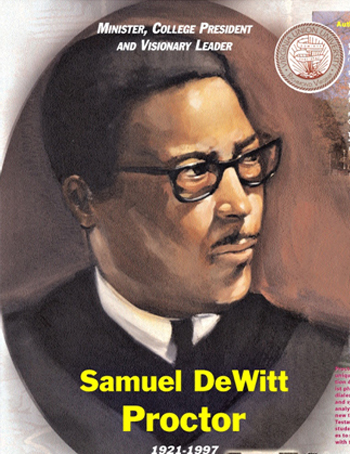
VII. Suggested Books to Enhance Your Understanding of Christian and Secular Education
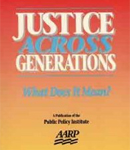 |
Cohen, Lee M., ed. Justice across Generations: What Does It Mean? Washington, DC: Public Policy Institute/AARP, 1993. |
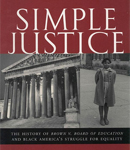 |
Kluger, Richard. Simple Justice: The History of Brown vs. Board of Education and Black America’s Struggle for Equality. New York, NY: Vintage, 2004. |
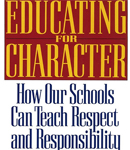 |
Lickona, Thomas. Educating for Character: How Our Schools Can Teach Respect and Responsibility. New York, NY: Bantam, 1992. |
 |
Roberts, Samuel K. In the Path of Virtue: The African American Moral Tradition. Cleveland, OH: The Pilgrim Press, 1999. |
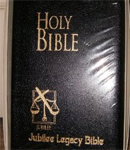 |
Smith, Charles, and Cain Hope Felder. The Jubilee Legacy Bible. Nashville, TN: Townsend Press, 2000. |
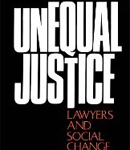 |
Auerbach, Jerold S. Unequal Justice: Lawyers and Social Change in Modern America. New York: Oxford University Press, 1976. |
Notes
1. “Certainly Lord.” Negro Spiritual. African American Heritage Hymnal. Chicago, IL: GIA Publications, 2001. #678
2. “This Little Light of Mine.” Negro Spiritual. African American Heritage Hymnal. #549
3. “Lift Every Voice and Sing.” By James W. Johnson. African American Heritage Hymnal. #540




